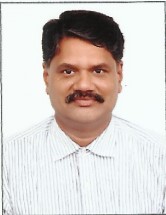Program Outcomes
Program Outcomes (PO)
PO 1: An ability to independently carry out research /investigation and development work to solve practical problems.
PO 2: An ability to write and present a substantial technical reports/documents.
PO 3: Students should be able to design and develop the component at the mastery over the area of the CAD/CAM Environment and they meet requirements in the computer integrated manufacturing environment.
PO 4: Graduate will demonstrate skills to use modern engineering tools, software and equipment to analyze problems.
PO 5: Graduate will show the understanding of impact of engineering solutions on the society with professional and ethical responsibilities and also will be aware of contemporary issues.
Curriculum & Syllabus
Curriculum & Syllabus
(MINIMUM CREDITS TO BE EARNED: 80)
| SEMESTER I | Hours/Week | Maximum Marks | ||||||
|---|---|---|---|---|---|---|---|---|
| Category | Course Title | Lecture | Tutorial | Practical | Credits | CA | SEE | Total |
| Professional Core | Mathematical Optimization | 3 | 1 | 0 | 4 | 40 | 60 | 100 |
| Professional Core | Flexible Competitive Manufacturing System | 3 | 0 | 0 | 3 | 40 | 60 | 100 |
| Professional Elective | Professional Elective Course - I | 3 | 1 | 0 | 4 | 40 | 60 | 100 |
| Professional Elective | Professional Elective Course - II | 3 | 1 | 0 | 4 | 40 | 60 | 100 |
| Professional Core | Computer Aided Design and Analysis Laboratory | 0 | 0 | 4 | 2 | 40 | 60 | 100 |
| Professional Core | Technical Seminar | 0 | 0 | 4 | 2 | 40 | 60 | 100 |
| Mandatory courses | Research Methodology and IPR | 3 | 0 | 0 | 2 | 40 | 60 | 100 |
| Audit Course | Audit Course - 1 | 2 | 0 | 0 | 0 | 40 | 60 | 100 |
| Total | 17 | 3 | 8 | 22 |
Eligibility Criteria
| Program | Program Duration (Year) | Eligibility | Criteria for Merit |
|---|---|---|---|
| M.E. Computer Integrated Manufacturing | "2 Years (4 Semesters)" | "Passed Bachelor’s Degree or equivalent in the relevant field. Obtained at least 50% marks (45% marks in case of candidates belonging to reserved category) in the qualifying examination." | Merit based on GATE/ TANCET/ Vels Entrance Examination and percentage of mark secured in the qualifying examination |
Career Prospects
CAREER PROSPECTS
- Design Engineer
- Production Engineer
- Quality Control Engineer
- Research & Development Engineer
- Supply Chain Engineer
- Reliability Engineer
- Planning Engineer
- Simulation & Analysis Engineer
- Quality Control Engineer
- Robotics Engineer
Alumni Testimonials

My Two years at Vels University have been excellent and a memory to cherish for a lifetime. VISTAS being a global university not only provides the finest education across the globe but also fosters you to evolve as a true professional. Vels University has always believed in helping and guiding its students. Our university has provided us a very enhanced and efficient platform for exposure to the training and placement. No wonder the university is new and is still striving to achieve excellence, but in the due time, it has definitely set some benchmarks in academia and is relentlessly trying to achieve the heights in rendering the world-class education.
P. THENDRAL SELVAM M.E. Computer Integrated Manufacturing Batch: 2018-2020
General Manager, HITEC INDUSTRIAL FAN AND SYSTEMS, Chennai
Fees Structure
| Tuition Fee 2024 - 2025 (Per Sem) | Other Fee (Per Sem) | Total Fee 2024 - 2025 (Per Sem) |
|---|---|---|
| 30,000 | 19,000 | 49,000 |
 CHAT WITH A STUDENT
CHAT WITH A STUDENT